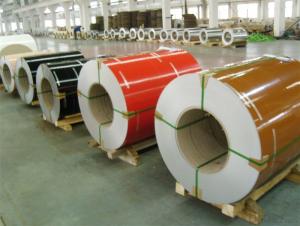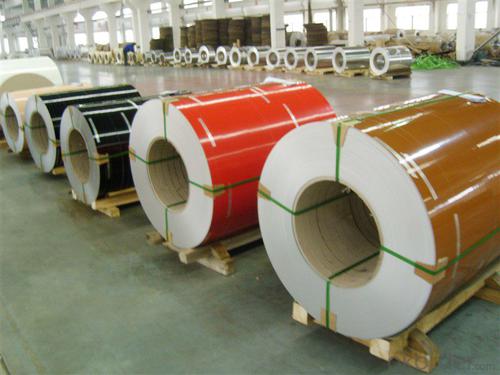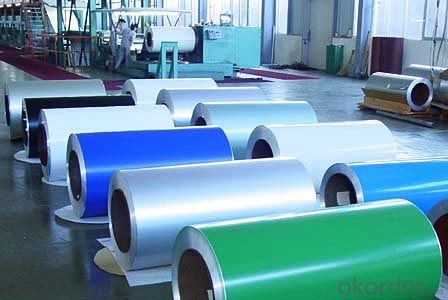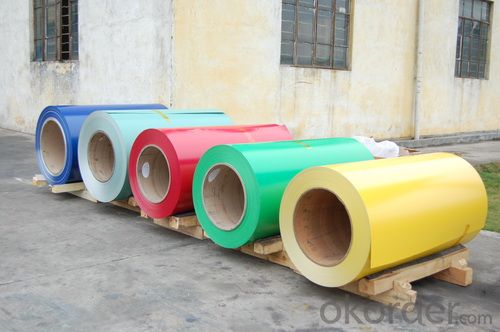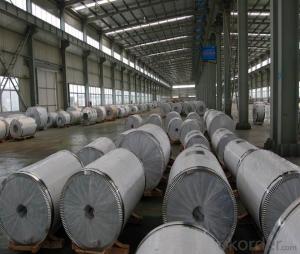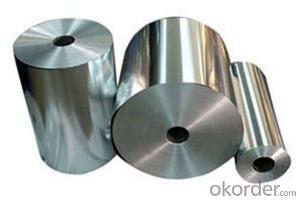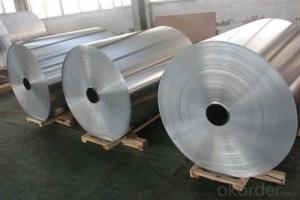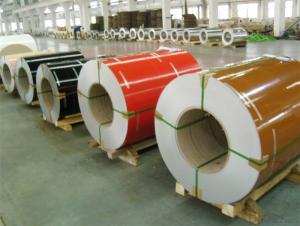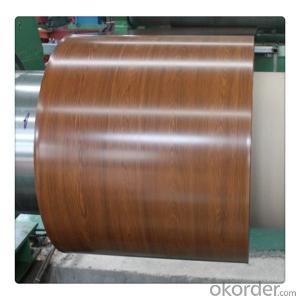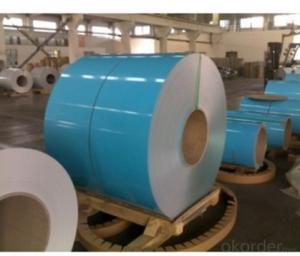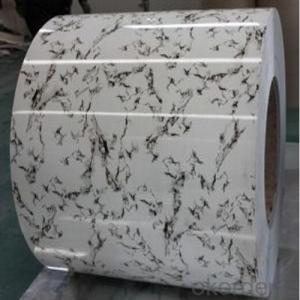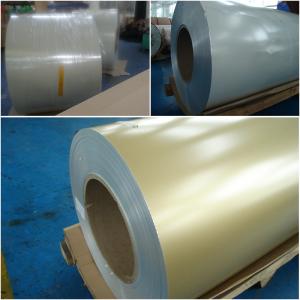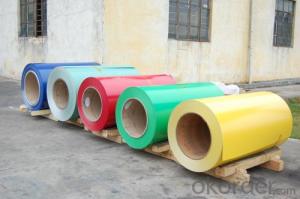Clad Aluminum Coil - Wooden Grain Pre-painted Aluminum with Good Price and Quality
- Loading Port:
- Shanghai
- Payment Terms:
- TT or LC
- Min Order Qty:
- 20 m.t.
- Supply Capability:
- 2000 m.t./month
OKorder Service Pledge
OKorder Financial Service
You Might Also Like
Wooden Pattern Coated Aluminum Coil /Anodized Aluminum Coil:
Our PVDF coated color aluminum coil is made of high-performance aluminum sheet and PVDF coating through advanced roller coating process.PVDF coated aluminum coil is a favorably choice of material for high-quality aluminum curtain wall, aluminum veneer sheet, Honeycomb panel. Its products are widely used in airports, convention centers, hotels and other high-end architectural curtain wall decoration
Main Features of Wooden Pattern Coated Aluminum Coil /Anodized Aluminum Coil :
1) Wear resistance 2) impact resistance 3) highly tensile strength 4) easy fabricating 5) UV resistance 6) weather resistance 7) corrosion- resistance 8) various colors.
Images of Wooden Pattern Coated Aluminum Coil /Anodized Aluminum Coil:
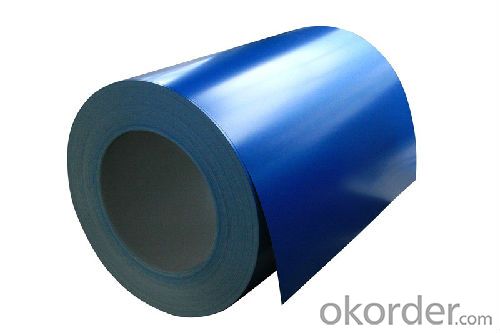
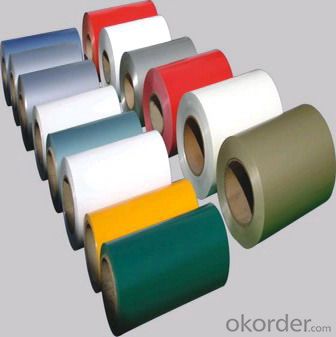
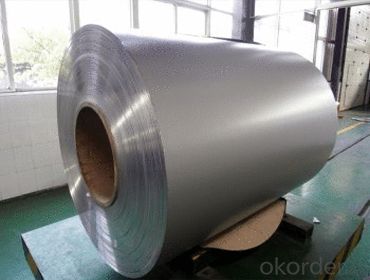
Wooden Pattern Coated Aluminum Coil /Anodized Aluminum Coil Specification:
| Aluminium series | Alloy | Temper | Thickness | Width | Pattern | Usage |
| 1000 series | 1050/1060/1070/1100 | H0-H112 | 0.3mm-5.0mm | 300mm-2200mm | Sheet/Coil | Chemical equipment, food industry equipment |
2000 series | 2014/2017/2024 | O,T3,T4 | 100mm-1250mm | Sheet/Coil | General Mechanical Components | |
| 3000 series | 3003/3004/3005/3105 | O/H32/H34/H36/H38/H116 | 0.2mm-6mm | 400mm-2000mm | Sheet/Coil | Building, PP cap material |
| 5000 series | 5005/5052/5083/5086/5182/5754 | O/H32/H34/H36/H38/H116 | 0.12mm-10mm | 20mm-2000mm | Sheet/Coil | Architectural decorative pieces, conductor, cookware |
| 6000 series | 6061/6205/6009/6010 | O/T4/T6 | 0.6mm-5mm | 100mm-1800mm | Sheet/Coil | Industrial structures, ships, trams, furniture components |
| 7000 series | 7038/7050/7075 | O/T6/T76 | 0.1mm-3.0mm | 400mm-2000mm | Sheet/Coil | Refrigerated containers, cryogenic equipment and storage tanks |
Test Reports of Wooden Pattern Coated Aluminum Coil /Anodized Aluminum Coil :
| PE | PVDF | |||||||
| Chromatism(ΔE) | Ceiling Decoration | Engineer Ceiling | Primer Print | Back Print | Ceiling Decoration | Engineer Ceiling | ||
| ≤0.5 | ≤0.7 | ≤0.8 | ≤2.0 | ≤0.5 | ≤0.7 | |||
| Pencil Hardness | ≥HB (No Crack or peel off) | |||||||
| Adhensive Resistance | Grade 0;No crack or peel off after the circling&pasting | Grade 0;No crack or peel off after the circling&pasting | ||||||
| Impact Resistance | ≥0.5mm | 0.3-0.5mm | ≥0.5mm | 0.3-0.5mm | ||||
| 50kgs.cm | 20kgs.cm | 50kgs.cm | 20kgs.cm | |||||
| Boiling Water Resistance | no changes by circling after 2h boiling | no changes by circling after 2h boiling | ||||||
| T-Bend Flexibility | composite panel | Ceiling Decoration | Engineer Ceiling | Primer/Back Print | Composite Panel | Ceiling Curtain | ||
| ≤2T | ≤1T | ≤2T | ≤3T | ≤2T | ≤2T | |||
| Coating Thickness(μm) | Topcoat | Primer coating | Double printing | Back Print | Topcoat | Back Print | total coating thickness | |
| ≥16 | 9~11 | 25~28 | 9~12 | 18-20 | 9~11 | 25-28 | ||
| Solvent Resistent | Single print≥100 times | Double print≥200 times | Back Print:30-70 times | Back Print:30-70 times | ≥200 times | |||
FAQ of Wooden Pattern Coated Aluminum Coil /Anodized Aluminum Coil:
a.What is monthly capacity
---CNBM is one stated own company and our monthly capacity is about 2000tons.
b. Now which countries do you export your goods?
---Now we export to South East Asia,Africa, North America,South America ect.
"Aluminum roll rolling machine after rolling, corner after processing, metal products for flying shears.Silicon have a corrosion effect on carbide.Although generally called more than 12% Si aluminum alloy high silicon aluminum alloy, it is recommended to use diamond tool, but this is not absolute, increasing silicon content on the destructive force of the cutting tool is gradually increasing.So some vendors in silica content more than 8% when diamond tool is recommended.Silicon content is between 8% and 12% of aluminium alloy is a transitional zone, can use ordinary carbide, also can use diamond tool.But using carbide method should be used by the PVD (physical coating), excluding aluminum, membrane thickness smaller tool.Because of PVD method and the small film thickness cutting tool to keep the sharp cutting edges, made possible by the (or grew up in order to avoid abnormal film layer on the edge need to enough passivation of blade, cutting aluminum alloy will not sharp), and membrane material containing aluminum may make the blade film layer with the workpiece materials close cooperation with the combination of film and cutting tool substrate.
"
- Q: What are the different grades of aluminum used in coil manufacturing?
- There are several different grades of aluminum used in coil manufacturing, each with its own unique properties and applications. The most commonly used grades include 1100, 3003, 5052, and 6061. - Grade 1100 is a commercially pure aluminum with excellent corrosion resistance and good formability. It is often used in chemical equipment, heat exchangers, and food handling equipment. - Grade 3003 is a non-heat treatable alloy with good corrosion resistance and moderate strength. It is commonly used in cooking utensils, roofing, and general sheet metal work. - Grade 5052 is a high-strength alloy with good formability and excellent corrosion resistance. It is frequently used in marine applications, such as boat hulls and components, as well as in automotive parts and appliances. - Grade 6061 is a heat treatable alloy with excellent strength and good machinability. It is commonly used in structural applications, such as aircraft parts, bike frames, and automotive components. These grades of aluminum offer a range of properties and characteristics, allowing manufacturers to choose the most suitable grade for their specific requirements in coil manufacturing.
- Q: What are the thickness tolerances for aluminum coils?
- The thickness tolerances for aluminum coils can vary depending on the specific grade and industry standards. Generally, the tolerances range from +/- 0.002 inches to +/- 0.010 inches.
- Q: This question asks for a comparison of various types of insulation materials, highlighting their unique characteristics and differences.
- <p>Different types of insulation materials vary in their properties such as thermal resistance (R-value), fire resistance, moisture resistance, and environmental impact. Fiberglass is a common, cost-effective option with good thermal resistance but can be irritating to the skin and respiratory system. Cellulose insulation is made from recycled paper and has good sound absorption but may be less fire resistant. Foam insulation like spray foam offers excellent insulation and air sealing but can be more expensive and harder to install. Mineral wool is fire-resistant and durable but may be less thermally efficient. Each type has its advantages and drawbacks, and the choice depends on factors like cost, environmental impact, and specific insulation needs.</p>
- Q: How do aluminum coils contribute to indoor air quality?
- Various ways are affected by the crucial role played by aluminum coils in maintaining and improving indoor air quality. Firstly, aluminum coils find common usage in HVAC systems, which are responsible for heating, ventilation, and air conditioning in buildings. These coils aid in the efficient transfer of heat and cooling, guaranteeing a comfortable indoor environment. By effectively regulating temperature and humidity, aluminum coils help in averting the growth of mold, mildew, and other harmful microorganisms that thrive in damp and warm conditions. As a result, the release of airborne spores and allergens that can have a negative impact on indoor air quality is prevented. Furthermore, aluminum coils exhibit high resistance to corrosion and do not easily accumulate dirt, dust, or debris. This characteristic is of utmost importance, as dirty coils can lead to reduced airflow and inefficient cooling or heating, ultimately resulting in poor air quality. By employing aluminum coils, HVAC systems can sustain optimal performance, ensuring proper air circulation and filtration. This assists in the elimination of pollutants, such as dust, pollen, pet dander, and volatile organic compounds (VOCs) from indoor air, thereby contributing to a healthier and cleaner environment. Another significant factor is that aluminum is a recyclable material, making it an environmentally friendly option. By choosing aluminum coils for HVAC systems, we contribute to waste reduction and the conservation of natural resources. This aligns with sustainable practices and supports endeavors to minimize the environmental impact of our indoor air conditioning systems. In conclusion, aluminum coils make a substantial contribution to indoor air quality by facilitating efficient temperature and humidity control, preventing the growth of harmful microorganisms, enabling proper air circulation, and facilitating effective filtration. Additionally, their durability and recyclability make them an outstanding choice for maintaining a healthy and sustainable indoor environment.
- Q: Can aluminum coils be used in high-magnetic field applications?
- Yes, aluminum coils can be used in high-magnetic field applications. Aluminum is a non-magnetic material, which means it does not have any magnetic properties. This makes it suitable for use in high-magnetic field applications where the presence of a magnetic field could interfere with the performance or function of the coils. Aluminum coils are commonly used in various industries, including electrical engineering, aerospace, and automotive, where high-magnetic fields are encountered. Additionally, aluminum is lightweight and has good electrical conductivity, making it an ideal choice for applications requiring efficient and lightweight coil designs.
- Q: How are aluminum coils used in the manufacturing of cookware?
- Aluminum coils are widely used in the manufacturing of cookware due to their excellent heat conductivity and lightweight nature. Cookware manufacturers typically use aluminum coils as the primary material for constructing the bases and bodies of pots, pans, and other cooking utensils. Firstly, aluminum coils are rolled out and then cut into different shapes and sizes depending on the desired cookware product. These coils are preferred over other materials, such as stainless steel or cast iron, because aluminum conducts heat more efficiently. This allows for even distribution of heat across the surface of the cookware, ensuring that food cooks evenly and thoroughly. Additionally, aluminum coils are lightweight, making the resulting cookware easier to handle and maneuver. This is particularly beneficial for professional chefs and home cooks who often need to lift and move pots and pans during the cooking process. Moreover, aluminum is a malleable material, meaning it can be easily shaped and formed into various cookware designs and styles. Whether it's a saucepan, frying pan, or baking tray, aluminum coils can be molded to create the desired shape and size, allowing for versatility in cookware manufacturing. Furthermore, aluminum has a natural resistance to corrosion, making it a durable choice for cookware. It does not react with acidic or alkaline ingredients commonly used in cooking, ensuring that the cookware remains safe for food preparation and cooking. Lastly, aluminum coils can be treated with non-stick coatings, such as Teflon, to create non-stick cookware. These coatings provide an additional layer of convenience, allowing for easy food release and hassle-free cleaning. In summary, aluminum coils play a crucial role in the manufacturing of cookware by providing excellent heat conductivity, lightweight construction, versatility in design, durability, and the option for non-stick coatings. These qualities make aluminum coils an ideal choice for producing high-quality cookware that delivers superior cooking performance and convenience in the kitchen.
- Q: Can aluminum coils be used for roofing?
- Certainly, roofing can be done using aluminum coils. Aluminum is widely regarded as a top preference for roofing materials because of its sturdy composition, lightweight properties, and exceptional resistance to corrosion. In a wide range of roofing applications, including residential, commercial, and industrial structures, aluminum roofing coils are frequently employed. They offer exceptional safeguarding against severe weather conditions like intense rainfall, snowfall, and powerful winds. Furthermore, aluminum coils possess energy-efficient attributes as they possess the ability to reflect solar heat, thereby aiding in preserving a cool indoor environment and reducing energy expenditures. All in all, aluminum coils present a dependable and enduring roofing solution.
- Q: A bit of a question for the 1911 experts roaming around here. Per-say someone, who knew their way around a 1911 built one on an aluminum frame. To top it all off, if the finished gun were to be chambered in .38 super... how long would this combination last? I've heard horror stories about aluminum frames, and then I've heard some wonderful things... this question was to see if anyone had ever thought about/done this sort of thing before. Something tells me that Aluminum + .38 super wouldn't last too long... Most informative answer gets the ten point prize as usual.
- I have two concerns about using an aluminum frame for that caliber. First, and like everyone else who answered, I don't think it will stand up to the .38 Super +P for very long (and I wouldn't want to be around when it fails). Second, the reason I believe the frame will not last nearly as long as a steel or stainless (my personal suggestion) frame is that the grooves the slide fits and rides in will wear and enlarge MUCH faster than a steel or stainless frame will. This will, in my opinion, also quickly have an adverse affect on accuracy. Aluminum has it's place, but I don't think it's anywhere near this kind of firearm. On a side note, one of the other people who answered said that the aluminum will offer some corrosion resistance. This may generally be true, but salt water (like sweat) attacks aluminum significantly faster than it does steel, and stainless steel is almost non-reactive to it. If he wants a lighter gun for carry, Try an XD45. If I remember right they are rated for .45 +P, but call Springfield Armory to make sure. With the polymer frame they are much lighter than a 1911, and I have been very satisfied with the accuracy and the reliability of mine. Personally, I don't think the weight savings of the alloy frame is worth the extra care to keep from sweating on it or the much shorter lifespan the gun will likely have. If he isn't planning on carrying it, what is the point of lightening the gun? He'll feel a lot more recoil, especially if he does shoot the +P ammo.
- Q: Can aluminum coils be embossed or textured?
- Aluminum coils possess the capability to undergo embossing or texturing, thereby enabling the creation of patterns or designs on their surface. This can be achieved through mechanical or chemical processes. The resulting embossed or textured surface not only enhances the visual appeal but also improves the functionality of the aluminum coil, by augmenting its grip or minimizing glare. Consequently, these aluminum coils, with their embossed or textured features, have found widespread utilization across industries like construction, automotive, and packaging.
- Q: Normal aluminum like you find in the ground, not the man made stuff
- Not at visible wavelengths at room temperature.
Send your message to us
Clad Aluminum Coil - Wooden Grain Pre-painted Aluminum with Good Price and Quality
- Loading Port:
- Shanghai
- Payment Terms:
- TT or LC
- Min Order Qty:
- 20 m.t.
- Supply Capability:
- 2000 m.t./month
OKorder Service Pledge
OKorder Financial Service
Similar products
Hot products
Hot Searches
Related keywords
